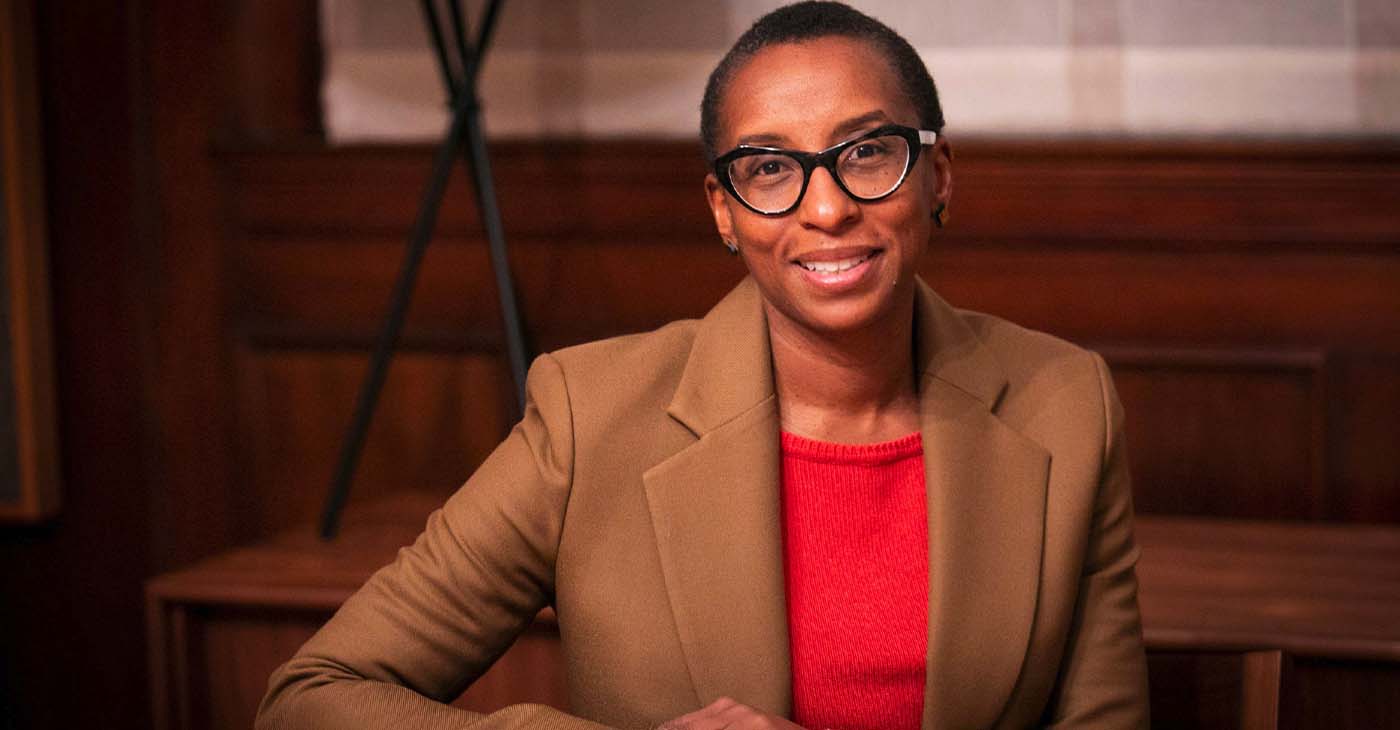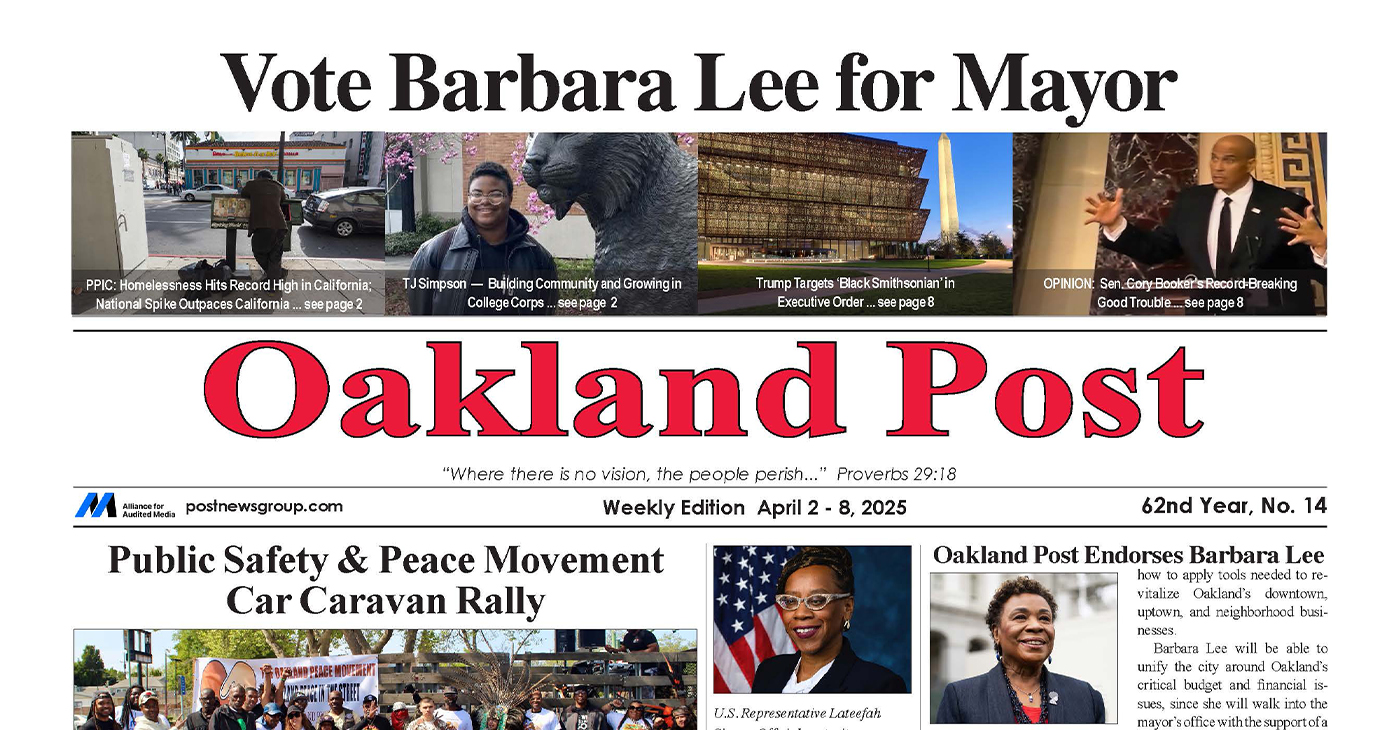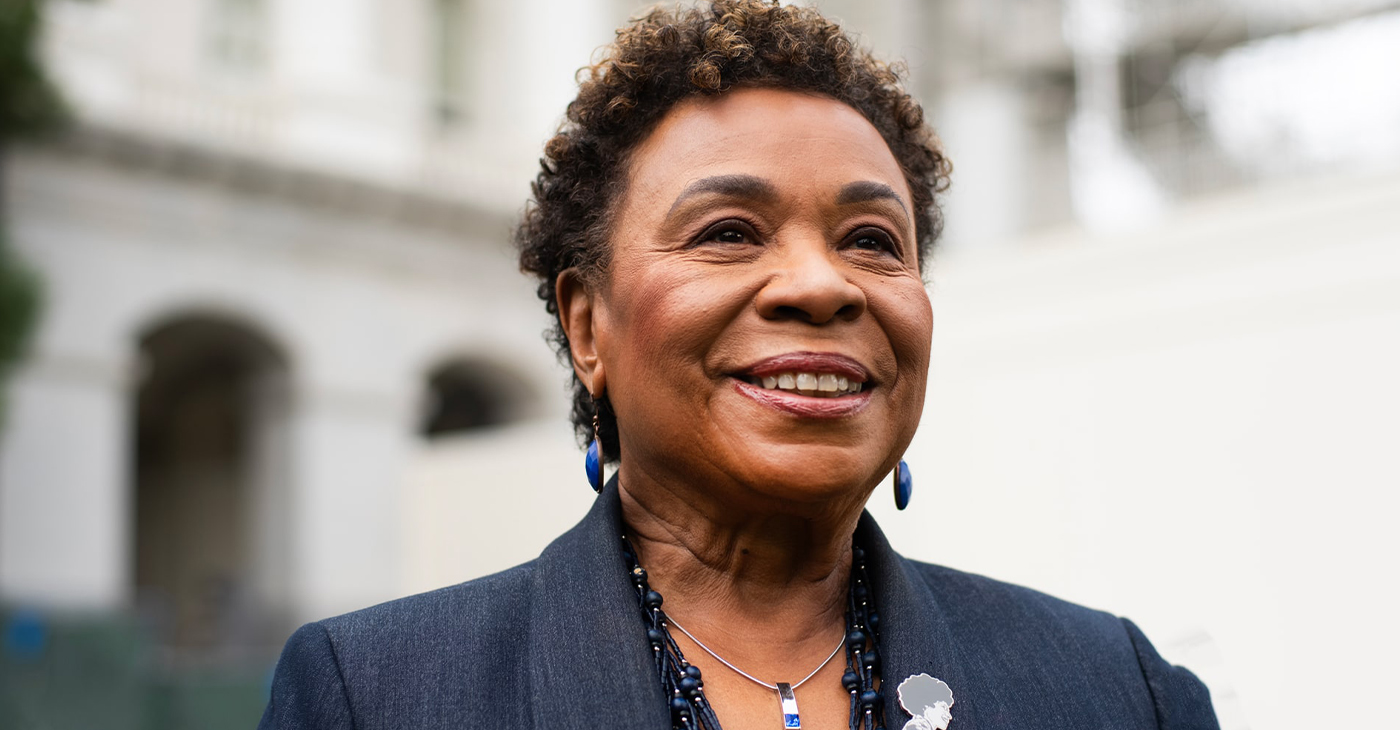Commentary
Commentary: Harvard’s First Black Female President Survives New Anti-Diversity Battle
If you haven’t realized it yet, that congressional hearing last week that continues to make news wasn’t about solving antisemitism in America in the shadow of the Israel/Hamas war. That was the given pretext for the hearing, but it really served as a platform for an outright attack by right-wing MAGA-types on the thing they believe has destroyed higher education – and all of society—in the last 30 years. What would that be? Diversity, of course, and the undoing of racial discrimination in the spirit of the Civil Rights Act.

By Emil Guillermo
If you haven’t realized it yet, that congressional hearing last week that continues to make news wasn’t about solving antisemitism in America in the shadow of the Israel/Hamas war.
That was the given pretext for the hearing, but it really served as a platform for an outright attack by right-wing MAGA-types on the thing they believe has destroyed higher education – and all of society—in the last 30 years.
What would that be?
Diversity, of course, and the undoing of racial discrimination in the spirit of the Civil Rights Act.
With that single word, “diversity,” comes all that detractors believe has crippled our country starting with our colleges and universities.
It includes everything from admissions, to hiring, and extends to a curriculum that has seen the emergence of race, gender, and equity studies. It serves to make everyone more aware of issues heretofore ignored in society in general.
What better way to bring about its reversal but in a high-profile congressional hearing attacking three elite university presidents?
The main instigator was fourth ranking Republican, Rep. Elise Stefanik of New York, a Donald Trump acolyte, and herself an Ivy League-educated Marjorie Taylor Green wannabe.
Stefanik is a Trump enabler who voted to invalidate the 2020 election and has maintained the “Big Lie” on election fraud.
That puts her low on any sane person’s credibility scale –unless you’re Donald Trump.
At the hearing, Stefanik in mini-authoritarian mode, was given extra time by fellow Republicans who yielded to her so she could wail at the college presidents demanding they give yes/no answers on complex matters of free speech and discrimination.
It was textbook political outrage as performance and a good example of why politics is sometimes called “show business for ugly people.”
Still, it’s hard to believe that elite college presidents, who themselves oversee sometimes treacherous academic office politics, could have been taken by surprise. Surely, they’ve seen Congressional hearings run by MAGA loyalists like Jim Jordan (R.-Ohio)?
But when Penn’s Elizabeth Magill, Harvard’s Claudine Gay, and MIT’s Sally Kornbluth came to Congress they just didn’t seem to have a clue they were being teed up by the conservative right.
They thought it was a serious inquiry into antisemitism and responded as such. They were going for nuance and were reserved when asked if calls for genocide against Jews harassment under university policy?
Yes, or no?
The presidents didn’t want to respond to hypotheticals. They said it depends on the context.
And that’s when they were bullied, harangued and soundbited.
How many people were surprised to see a Black woman among the three? That would be Claudine Gay, African American Studies scholar, and the first African American to be president of Harvard.
But she really stood for all of us.
Despite more than five hours of hearings, most people only saw the micro-clips showing the three presidents respond in a collegial, legalistic way. They were soft-spoken and reasonable, respectful of the inquiry. They did not match the volume, ire, and fake passion of Stefanik.
Good enough in a fair fight. But this was not that. The presidents failed to understand that hearings exist for members of Congress to demagogue, beat up on their invited guests, all while the cameras roll, creating viral clips for their own re-election campaigns.
Stefanik got the newsclips she wanted on every major network. But it opened an old wound about America’s reckoning on race. It made everyone question it.
Over the weekend, the key takeaway wasn’t that rising anti-Semitism was bad in society or on campus. Indeed, one major cable network suggested the hearings showed why the public has lost faith in higher ed, claiming it has become home of dogmatic ideology and social engineering, not academic merit.
A fellow committee member Mark Takano (D-Calif.) could see through it. He told the Harvard Crimson the Republicans “were not really interested in the topic of antisemitism and antisemitism on campus.” Rather, Takano, thought the Republicans were playing divisive MAGA-politics.
“My own sense is that the Republicans are spring-loaded to enact a narrative that universities are bastions of liberal progressives,” Takano told the college newspaper. “They wanted to present an opportunity for their members to portray universities in a certain way.”
He was also critical of Stefanik whom he observed as taking a “hard turn to the right.”
But Stefanik’s stunt appears to be working.
While MIT President Sally Kornbluth has received some support on her campus, Penn’s President Magill was forced to resign over the weekend.
Harvard’s Gay apologized for her performance on Friday but was still under some pressure to resign. To counter, faculty members circulated a letter of support on Sunday. But there’s also been some public discussion questioning whether as an African America woman Gay was even qualified for the job.
Some conservative outlets going into her scholarly work exposed minor examples of plagiarism, anathema. On Tuesday Harvard’s board voted to “unanimously stand in support of President Gay.”
All this from an inquiry into fighting antisemitism. Instead, the hearing exposed the bitterness and resentment that some still have over a move toward diversity, equity, and inclusion (DEI). It is a staple MAGA argument.
Stefanik’s stunt worked so well, expect more of it.
Yes, we’re all against antisemitism. But as we see, in 2023, some people hate diversity, equity and inclusion efforts, even more.
Emil Guillermo is a veteran Northern California journalist and commentator. He does a micro-talk show on YouTube.com/@emilamok1
Activism
Oakland Post: Week of April 2 – 8, 2025
The printed Weekly Edition of the Oakland Post: Week of April 2 – 8, 2025

To enlarge your view of this issue, use the slider, magnifying glass icon or full page icon in the lower right corner of the browser window.
Activism
Oakland Post Endorses Barbara Lee
Barbara Lee will be able to unify the city around Oakland’s critical budget and financial issues, since she will walk into the mayor’s office with the support of a super majority of seven city council members — enabling her to achieve much-needed consensus on moving Oakland into a successful future.

As we end the celebration of Women’s History Month in Oakland, we endorse Barbara Lee, a woman of demonstrated historical significance. In our opinion, she has the best chance of uniting the city and achieving our needs for affordable housing, public safety, and fiscal accountability.
As a former small business owner, Barbara Lee understands how to apply tools needed to revitalize Oakland’s downtown, uptown, and neighborhood businesses.
Barbara Lee will be able to unify the city around Oakland’s critical budget and financial issues, since she will walk into the mayor’s office with the support of a super majority of seven city council members — enabling her to achieve much-needed consensus on moving Oakland into a successful future.
It is notable that many of those who fought politically on both sides of the recent recall election battles have now laid down their weapons and become brothers and sisters in support of Barbara Lee. The Oakland Post is pleased to join them.
Activism
Oakland Post: Week of March 28 – April 1, 2025
The printed Weekly Edition of the Oakland Post: Week of March 28 – April 1, 2025

To enlarge your view of this issue, use the slider, magnifying glass icon or full page icon in the lower right corner of the browser window.
-

 Activism2 weeks ago
Activism2 weeks agoWe Fought on Opposite Sides of the Sheng Thao Recall. Here’s Why We’re Uniting Behind Barbara Lee for Oakland Mayor
-

 #NNPA BlackPress2 weeks ago
#NNPA BlackPress2 weeks agoRev. Dr. Jamal Bryant’s Black Church Target Boycott Mobilizes 150,000
-

 Activism4 weeks ago
Activism4 weeks agoOakland Post: Week of March 5 – 11, 2025
-

 Activism3 weeks ago
Activism3 weeks agoSan Francisco Is Investing Millions to Address Food Insecurity. Is Oakland Doing the Same?
-

 #NNPA BlackPress2 weeks ago
#NNPA BlackPress2 weeks agoRecently Approved Budget Plan Favors Wealthy, Slashes Aid to Low-Income Americans
-

 #NNPA BlackPress4 weeks ago
#NNPA BlackPress4 weeks agoTrump Moves to Dismantle Education Department
-

 #NNPA BlackPress4 weeks ago
#NNPA BlackPress4 weeks agoFighting to Keep Blackness
-

 Activism2 weeks ago
Activism2 weeks agoFaith Leaders Back Barbara Lee for Mayor, Criticize Candidate Loren Taylor for Dishonest Campaigning

















































